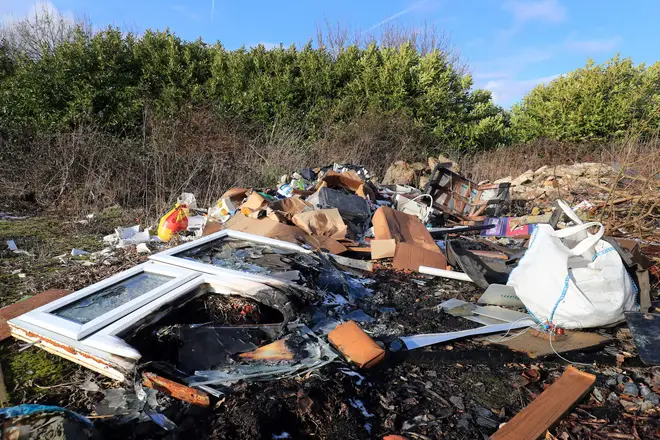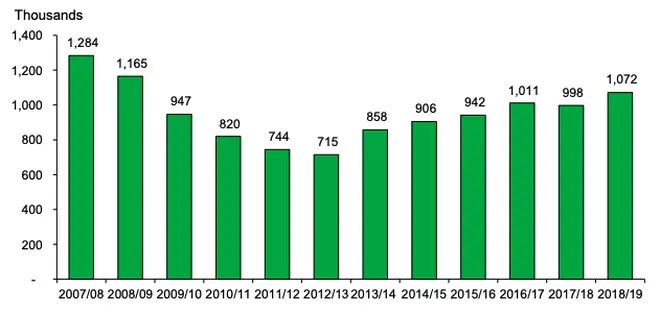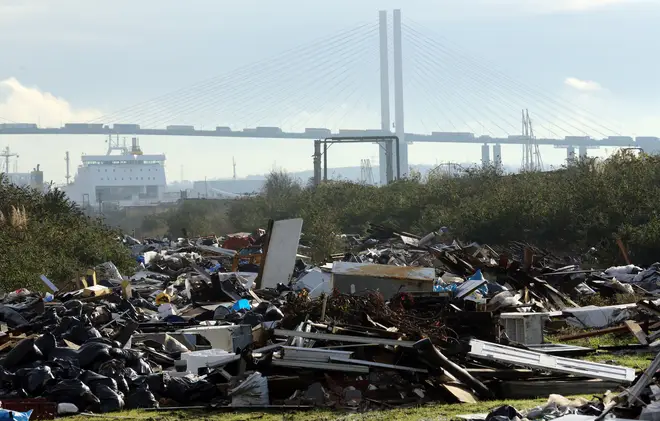
Matthew Wright 7am - 10am
7 November 2019, 19:36

English councils cleared up more than a million fly-tipping sites in the past year with the "epidemic" continuing to rise, official figures have revealed.
Local authorities reported an eight per cent increase of incidents from 2018 to 2019 with 1,072,000 flagged up, the Department for Environment, Food and Rural Affairsn(DEFRA) confirmed.
Nearly two-thirds of the cases involved household rubbish including black bags, furniture and and leftover waste from DIY projects and shed clearances.
Almost half the time waste was dumped along roads and pavements with roughly 33 per cent of the incidents being the size of a small van load.
The Local Government Association (LGA) said fly-tipping cost taxpayers "more than £57m a year to clear up" and cracking down on the issue was both time-consuming and labor-intensive.

Defra's figures suggest the number of cases was the highest for a decade, however changes to the way councils "capture and report fly-tips over the past few years" mean the statistics "should be interpreted with some care."
White goods such as fridges and washing machines were regularly picked up by local authorities.
The charity Keep Britain Tidy expressed its concern that the numbers could be much worse than those accounted for.
Allison Ogden-Newton, the chief executive, said: "Keep Britain Tidy suspects that, bad as these figures are, the reality may be even worse as many incidents of fly-tipping are being categorised as littering so not being counted.
She called for action on a national level and suggested "a programme of education and engagement in every local authority in the country."
"Many people are unaware that they are doing something illegal when they put out black bags or small items because councils are clearing them up extremely quickly.
"The reality is that this is fuelling the fly-tipping epidemic and costing all of us, as tax-payers, many millions to clean up."

Almost half a million enforcement actions were carried out to tackle the problem, including investigations and issuing fixed penalties.
Wayne Dixon, a Litter Hero for Keep Britain Tidy, told LBC News there were several causes for the problem.
"Obviously sheer laziness is one of the reasons, but most people I speak to say its about the cost of taking certain stuff to the tip. If that cost wasn't there they would do it.
"People live fast lives and are living more indoors so they're becoming litter blind."